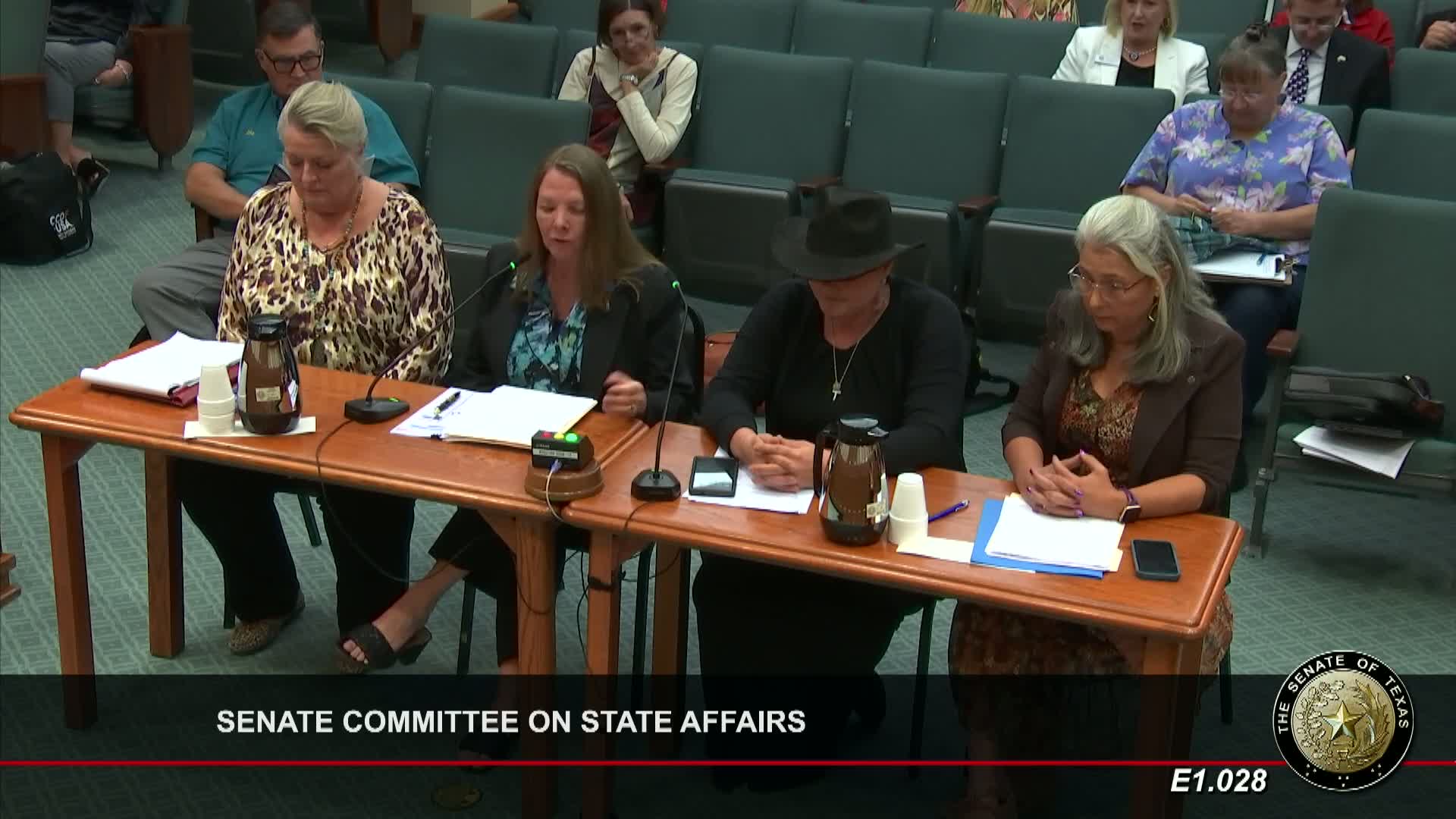Texas Election Audit Faces Scrutiny Over Integrity Concerns
October 16, 2024 | Committee on State Affairs, Senate, Legislative, Texas
This article was created by AI summarizing key points discussed. AI makes mistakes, so for full details and context, please refer to the video of the full meeting. Please report any errors so we can fix them. Report an error »

During a recent government meeting, discussions centered on the integrity of election audits in Texas. Concerns were raised about the thoroughness of audits conducted by the secretary of state's office, particularly regarding the 2020 audit in Collin County, where actual ballots were not examined. Critics argue that this raises questions about the comprehensiveness of the audit process.
United Sovereign Americans proposed several recommendations for improving election audits. They emphasized the need for a National Institute of Standards and Technology (NIST) compliant, randomized, and statistically valid audit with a 95% confidence level. They suggested that qualified auditors, not election personnel, should conduct these audits. Additionally, they called for reconciliation of various election components, including vote counts and physical ballots. If discrepancies exceed 10% of the margin of victory, they argued that a new election should be held unless issues can be corrected through a manual recount.
Marsha Strickler Watson, executive director of Citizens Defending Freedom, highlighted ongoing legal actions in Florida concerning election integrity. She pointed out that Florida had exceeded permissible voting system errors, which could affect the certification of elections. She urged Texas officials to adhere to election laws and hold accountable those who do not.
Lucy Trainer, representing herself, expressed disappointment that past audit legislation did not apply to more counties beyond Harris County. Ed Johnson from the Harris County Ballot Security Committee praised recent legislation that improved election management and reduced costs significantly. He suggested implementing maintenance programs for voting equipment to prevent failures.
Dr. Laura Presley from True Texas Elections raised concerns about the lack of minimum standards in current audit statutes. She stressed the importance of auditing physical ballots alongside electronic results, noting that many critical components of the election process are not currently included in audits.
The meeting underscored a growing demand for more rigorous and transparent election auditing processes in Texas, reflecting broader national conversations about election integrity.
United Sovereign Americans proposed several recommendations for improving election audits. They emphasized the need for a National Institute of Standards and Technology (NIST) compliant, randomized, and statistically valid audit with a 95% confidence level. They suggested that qualified auditors, not election personnel, should conduct these audits. Additionally, they called for reconciliation of various election components, including vote counts and physical ballots. If discrepancies exceed 10% of the margin of victory, they argued that a new election should be held unless issues can be corrected through a manual recount.
Marsha Strickler Watson, executive director of Citizens Defending Freedom, highlighted ongoing legal actions in Florida concerning election integrity. She pointed out that Florida had exceeded permissible voting system errors, which could affect the certification of elections. She urged Texas officials to adhere to election laws and hold accountable those who do not.
Lucy Trainer, representing herself, expressed disappointment that past audit legislation did not apply to more counties beyond Harris County. Ed Johnson from the Harris County Ballot Security Committee praised recent legislation that improved election management and reduced costs significantly. He suggested implementing maintenance programs for voting equipment to prevent failures.
Dr. Laura Presley from True Texas Elections raised concerns about the lack of minimum standards in current audit statutes. She stressed the importance of auditing physical ballots alongside electronic results, noting that many critical components of the election process are not currently included in audits.
The meeting underscored a growing demand for more rigorous and transparent election auditing processes in Texas, reflecting broader national conversations about election integrity.
View full meeting
This article is based on a recent meeting—watch the full video and explore the complete transcript for deeper insights into the discussion.
View full meeting
